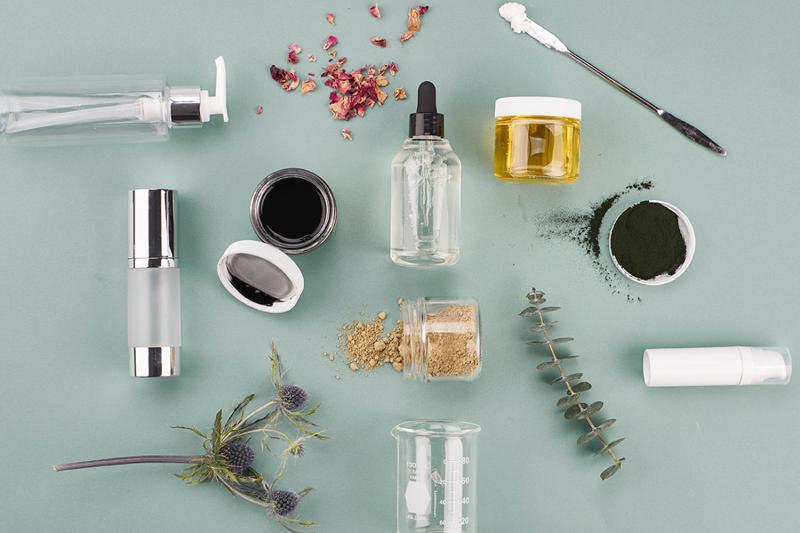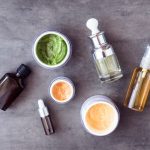Understanding Of Personal Care Manufacturing – Vive Cosmetic Personal care manufacturing provides various products for personal hygiene, beauty, and grooming for your skin. These products include various skincare items like lotions, creams, and serums and also hair care products like shampoos, conditioners, and grooming products. This process involves raw materials, formulating products, manufacturing, and packaging. This is the main reason that makes us unique and better than many other personal care cosmetic manufacturers. If you want to Understand Personal Care Manufacturing, then our blog will help you.

The personal care Manufacturing industry has been seeing tremendous growth, And consumers becoming more conscious about their appearance. When the entire household uses the products in liter packaging to now when every member has a regime they follow, times have changed many times. As a result, the demand for personal care products has skyrocketed increase rapidly, making personal care manufacturing a successful and competitive industry. Suppose you’re considering entering the realm of personal care manufacturers and want to understand the process behind your favorite skincare or hair care products.
Table of Contents
What Are The Key Steps For Personal Care Manufacturing?
- Create The Product In Brief – To begin, you’ll need a sound and well-constructed product brief—the document that outlines the business case, general product specifications, and how the item will be presented to the target audience.
- Sources Of Raw Material – Manufacturers get possession of ethical, high-quality raw materials from recognized suppliers. These raw materials include oils, botanical extracts, vitamins, minerals, and chemicals.
- Production Formulation – In this step, the manufacturer combines the chosen raw materials to create a measurement formula that meets the desired specifications. This involves testing different combinations and ratios to achieve the desired product attributes in case of a new product making sudden movement and mixing ingredients with a set base in case of existing set formulations.
- Process Of Manufacturing – Once the formulation is finalized, it moves into manufacturing. This includes heating and mixing the ingredients in a wide range of equipment to create the product.
- Quality Of Product – Personal care manufacturing requires strict quality control to ensure constant safety. Manufacturers conduct careful testing to assess product stability, efficacy, and consistency.
- Research – This is the initial phase where manufacturers study market trends and consumer preferences and conduct research to formulate innovative and effective products.
Rules And Regulations To Follow To Start Manufacture
- Register Your Business – The first step to starting a small manufacturing business in India is to register your business. You can register your business as a partnership, or private limited company, depending on your requirements. It is most important to obtain a unique business name and register with the Registrar of Companies. The registration process involves a Digital Signature Certificate and a Director Identification Number.
- Obtain License Permit – Once your business is registered, the next step is to obtain the necessary licenses and permits required to operate a manufacturing business in India. The licenses and permits required depending on the nature of your business, the industry you are working in, and the state in which you are based.
- Obey Labour Laws – As an employer, you must obey the labor laws applicable in India. The labor laws in India cover aspects such as minimum wages, working hours, overtime, safety, health, and welfare of workers. It is important to maintain proper records of your employees, including their attendance, wages, and other benefits, to comply with labor laws.
- Follow Environmental Rules – Manufacturing businesses in India are required to obey various environmental regulations to protect the environment and ensure sustainable development. The Pollution Control Board Consent is one of the most important licenses required to obey environmental regulations. You must ensure that your manufacturing processes are environmentally friendly and do not harm the environment in any way.
- Ensure Tax Orders – All businesses in India are required to obey various tax laws, including income tax, goods and services tax, and customs duty. You must maintain proper records of your business transactions or file and pay your taxes regularly to avoid any legal issues or penalties.
Latest Trends And Techniques To Follow
Personal care manufacturing means to provide various products for beauty, and grooming. These products include all types of skincare items like lotions, creams, and serums and hair care products like shampoos, conditioners, and grooming products. This process involves sourcing raw materials, manufacturing, and packaging. It involves:
- Clear Elements – Manufacturers can respond by focusing on tracking balances, serial numbers, lot, and production line information in time. Giving personal care brands the exact product information they need to build strong customer relationships.
- Sustainability – We’ll also see brands that use less packaging on their products or remove packaging creating items like solid shampoo and shower gel bars. Manufacturers must address how these goods can be packaged and shipped using a few materials without compromising the quality of products delivered on time.
- Pace And Suitable Time – personal care companies will focus on their e-commerce strategy, with many going direct-to-consumer for the first time. A strong relationship with their chosen manufacturer will be essential to converting market desire into satisfied customers and increased sales.
Key Factors to Consider While Choosing a Personal Care Cosmetics Manufacturer
-
MINIMUM ORDER QUANTITY – This is a case of quantity over quality. You need to know what is the lowest number of units your selected manufacturer will make, especially as a start-up entrepreneur. The last thing you need is to sit with more products than customers. It is also important to know the last-minute orders that just came in with a deadline which brings in the next point.
-
LEAD TIMES – This is a complete timeline of how long your manufacturer takes from the time they receive your order to the delivery of your product. Having this knowledge will help you set clearer goals.
-
CERTIFICATIONS – This is essentially important to your brand and reputation. Some
manufacturers are certified by either government bodies or other larger bodies to produce and distribute certain product categories. First of all make sure both your goals and their paperwork are perfect to appeal to your product in the market, especially when it comes to International Shipping.
How Personal Care Cosmetics Manufacturers Create the Perfect Products?
- The personal care cosmetic Development Team creates new products and improves existing ones.
- Manufacturing Managers oversee production, improve procedures, schedule work, and lead teams.
- Production Technicians and Operators operate equipment, oversee production, and give safety and quality standards.
- The quality Control and Assurance Team ensures that products meet standards and regulations through judgment and inspections.
- Packaging and Labeling Specialists choose materials, create designs, ensure branding and regulation standards, and work closely with production teams.
- Regulatory Compliance Experts ensure that regulations keep looking to labeling, ingredient restrictions, and Good Manufacturing Practices.
- The Logistics Team handles raw materials, suppliers, inventory, logistics, and customer delivery and collaborates with manufacturing and sales.
- Environmental and Safety Specialists focus on safety, waste management, and sustainable practices.
Conclusion
In this, we can say that personal care manufacturing is a complex process that involves various stages, from research and development to distribution. Manufacturers must navigate through regulatory compliance, embrace industry trends, and overcome challenges to succeed in this competitive market. By understanding personal care manufacturing, you can gain valuable insights into the industry and appreciate the effort that goes into creating the products that enhance our personal care routines.
Frequently Asked Questions
Question – What should we know about personal care products?
Answer – Personal care cosmetic products generally belong to hygienic practices and rinse off immediately after use, such as shampoos, soaps, kinds of toothpaste, and shower gels. A few personal care products stay on the skin for at least a few hours, such as sanitizers, sunscreen lotion, etc.
Question – Why do we need to use personal care products?
Answer – Some benefits of using personal care products include anti-aging, hydration, anti-inflammation, anti-oxidant, and anti-pollution effects. Personal care products are used to improve the appearance and odor of the human body, including hair care, skincare, and dental care.
Question – Cosmetic products under personal care Or Not?
Answer – A personal care product can be defined as a substance or mixture of substances that is generally recognized by the public for use in daily cleansing or grooming. Based on the ingredients we said that a personal care product can be regulated as a cosmetic or a drug.







 Home
Home Range
Range Call Us
Call Us Whatsapp
Whatsapp Contact Us
Contact Us